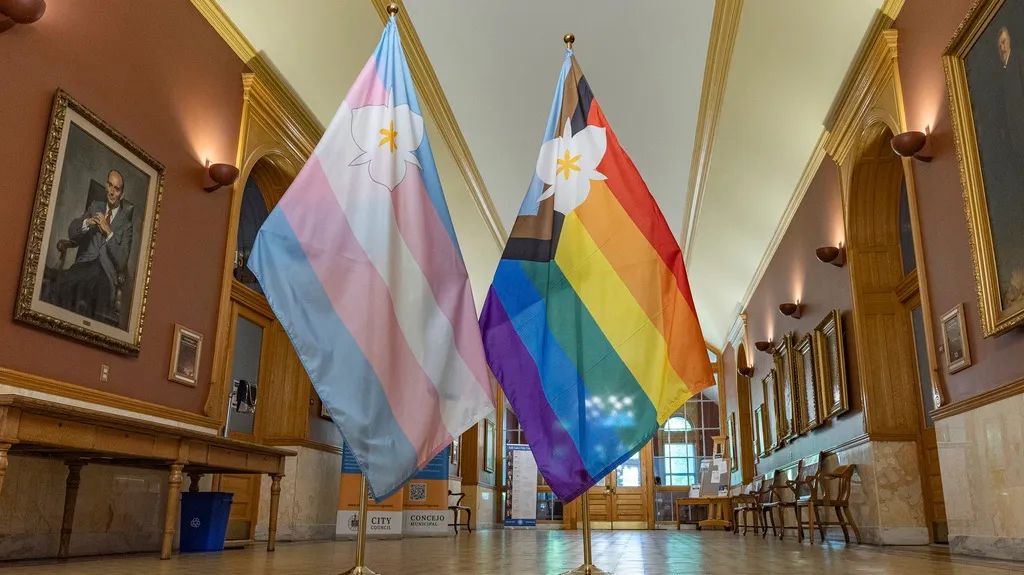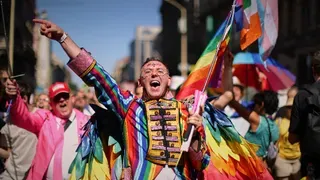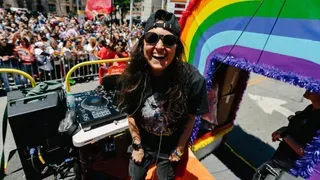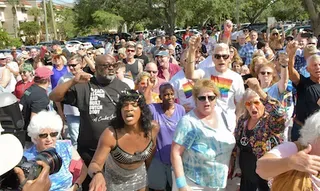July 2, 2007
Madrid celebrates gay rights advances at Euro Pride festivities
David Foucher READ TIME: 2 MIN.
MADRID, Spain - Hundreds of thousands of people from across Europe packed into Madrid on Saturday and joined in a gay pride parade that saluted Spain's socialist government for introducing legislation that has turned this once deeply conservative nation into a bastion of gender equality.
The parade, which filled the capital's vast Alcala and Gran Via boulevards from Puerta de Alcala square in the east to Plaza de Espana square in the west, took place in a festive and peaceful atmosphere.
For days, buses and airplanes had arrived in Madrid loaded with people set on taking advantage of a four-day annual gay festival, which started Wednesday in the Spanish capital's colorful Chueca neighborhood as a prelude to Saturday's bigger, continentwide Euro Pride events.
Around 200 cultural, festive and sporting events were organized around Madrid, where organizers estimated as many as 2.5 million people were taking part.
"They've been enjoying the Chueca festival, at which we've seen many more people than in previous years,'' Antonio Poveda, president of Spain's lesbian, gay, transsexual and bisexual federation, said earlier.
The parade, with at least 45 festive floats, crisscrossed Madrid under the banner "Now Europe, equality is possible.''
Groups of women carried banners saying, "Families are important. Gay and lesbian families also matter.''
"We have to defend our rights as gays, and from Spain we are going to proclaim loudly that these rights can be achieved,'' said Poveda, 39, speaking in a bar which, like much of Chueca, was festooned with gay rights placards and colorful streamers.
"In this country we are in the vanguard of social victories, we had always been behind Europe,'' Poveda said.
Spain, predominantly Roman Catholic, had for centuries been under the moral guardianship of the church. The 1939-75 military dictatorship of Gen. Francisco Franco ruled with an iron grip, and homosexuality was illegal.
The Socialist government of Jose Luis Rodriguez Zapatero in 2005 approved same gender marriages, began allowing same sex couples to adopt children and brought in legislation that made homosexual rights equal to those of heterosexuals in areas including inheritance and workplace benefits.
Since then, out of an estimated gay population of 4 million, up to 10,000 gay couples have wed, Poveda said.
Homosexuality was decriminalized in 1979. Today Spain has some of the most liberal gay rights legislation in the world.
Several groups carried banners saying, "Poland, stop homophobia. For a European Union free of discrimination,'' "Next Euro Pride in Poland,'' and "Watch out for the German shepherd'' next to a photograph of Pope Benedict XVI.
Gay activists draped in rainbow flags also demonstrated in front of the Polish Embassy in Madrid, calling for greater equality for Poland's gay community. Demonstrators called on Poland's conservative government to back down from a policy against homosexual influences in public life.
David Foucher is the CEO of the EDGE Media Network and Pride Labs LLC, is a member of the National Lesbian & Gay Journalist Association, and is accredited with the Online Society of Film Critics. David lives with his daughter in Dedham MA.







